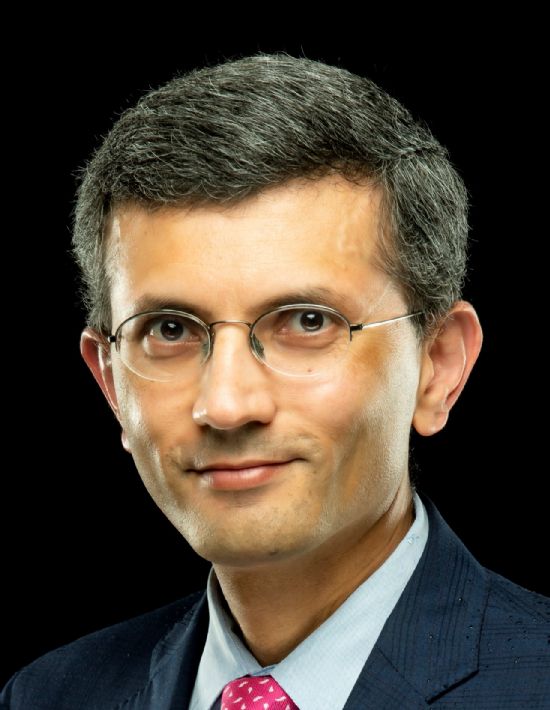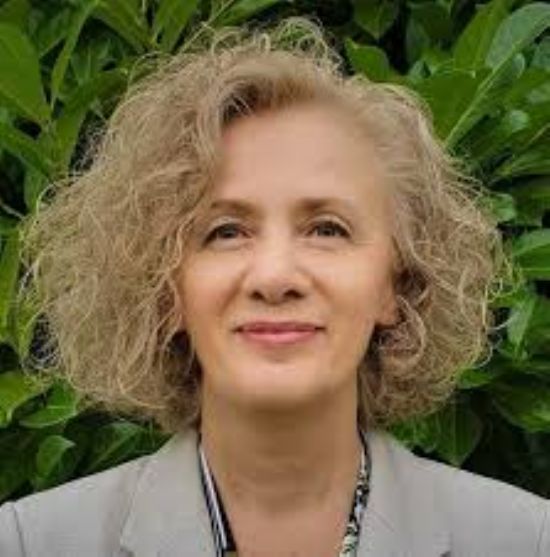Time slot's time in Taipei (GMT+8)
2025/11/22 11:00-12:30 Room 201 ABC
- Rollout of IFCN Position Statement
AI in Clinical Neurophysiology (CNP): the Position Statement of IFCN
- Time
- Topic
- Speaker
- Moderator
- 11:00-11:05
- Introduction
- Speaker:
Aatif Mairaj Husain
- Moderator:
Aatif Mairaj Husain
- Aatif Mairaj Husain
- MD
-
Chief, Division of Epilepsy, Sleep, and Clinical Neurophysiology, Duke University
E-mail:aatif.husain@duke.edu
Executive Summary:
Dr. Aatif Husain is a Professor in the Department of Neurology and Chief of the Division of Epilepsy, Sleep, and Clinical Neurophysiology at Duke University Medical Center in Durham, North Carolina. He also serves as Co-Director of the Neuroscience Clinical Services Unit at Duke University Hospital.
He is currently the Treasurer of the International Federation of Clinical Neurophysiology and Chair of the Council of Clinical Activities of the American Epilepsy Society. Dr. Husain is a past President of both the American Clinical Neurophysiology Society and ABRET and has previously served as Editor-in-Chief of the Journal of Clinical Neurophysiology.
His clinical and research interests focus on evoked potentials, neurophysiologic intraoperative monitoring, and the treatment of acute seizures, status epilepticus, narcolepsy, and other hypersomnias.
Dr. Aatif Husain is a Professor in the Department of Neurology and Chief of the Division of Epilepsy, Sleep, and Clinical Neurophysiology at Duke University Medical Center in Durham, North Carolina. He also serves as Co-Director of the Neuroscience Clinical Services Unit at Duke University Hospital.
He is currently the Treasurer of the International Federation of Clinical Neurophysiology and Chair of the Council of Clinical Activities of the American Epilepsy Society. Dr. Husain is a past President of both the American Clinical Neurophysiology Society and ABRET and has previously served as Editor-in-Chief of the Journal of Clinical Neurophysiology.
His clinical and research interests focus on evoked potentials, neurophysiologic intraoperative monitoring, and the treatment of acute seizures, status epilepticus, narcolepsy, and other hypersomnias.
Lecture Abstract:
- Time
- Topic
- Speaker
- Moderator
- 11:05-11:30
- Integration of AI in CNP Practice - IFCN Recommendations
- Speaker:
Aatif Mairaj Husain
- Moderator:
Aatif Mairaj Husain
- Aatif Mairaj Husain
- MD
-
Chief, Division of Epilepsy, Sleep, and Clinical Neurophysiology, Duke University
E-mail:aatif.husain@duke.edu
Executive Summary:
Dr. Aatif Husain is a Professor in the Department of Neurology and Chief of the Division of Epilepsy, Sleep, and Clinical Neurophysiology at Duke University Medical Center in Durham, North Carolina. He also serves as Co-Director of the Neuroscience Clinical Services Unit at Duke University Hospital.
He is currently the Treasurer of the International Federation of Clinical Neurophysiology and Chair of the Council of Clinical Activities of the American Epilepsy Society. Dr. Husain is a past President of both the American Clinical Neurophysiology Society and ABRET and has previously served as Editor-in-Chief of the Journal of Clinical Neurophysiology.
His clinical and research interests focus on evoked potentials, neurophysiologic intraoperative monitoring, and the treatment of acute seizures, status epilepticus, narcolepsy, and other hypersomnias.
Dr. Aatif Husain is a Professor in the Department of Neurology and Chief of the Division of Epilepsy, Sleep, and Clinical Neurophysiology at Duke University Medical Center in Durham, North Carolina. He also serves as Co-Director of the Neuroscience Clinical Services Unit at Duke University Hospital.
He is currently the Treasurer of the International Federation of Clinical Neurophysiology and Chair of the Council of Clinical Activities of the American Epilepsy Society. Dr. Husain is a past President of both the American Clinical Neurophysiology Society and ABRET and has previously served as Editor-in-Chief of the Journal of Clinical Neurophysiology.
His clinical and research interests focus on evoked potentials, neurophysiologic intraoperative monitoring, and the treatment of acute seizures, status epilepticus, narcolepsy, and other hypersomnias.
Lecture Abstract:
Integration of AI in CNP Practice - IFCN Recommendations
This talk will present an overview of the forthcoming IFCN position statement, highlighting its core recommendations for how artificial intelligence should be integrated into clinical neurophysiology practice. Emphasis will be placed on the role of AI as a decision-support tool rather than a replacement for expert clinical judgment.
Integration of AI in CNP Practice - IFCN Recommendations
This talk will present an overview of the forthcoming IFCN position statement, highlighting its core recommendations for how artificial intelligence should be integrated into clinical neurophysiology practice. Emphasis will be placed on the role of AI as a decision-support tool rather than a replacement for expert clinical judgment.
- Time
- Topic
- Speaker
- Moderator
- 11:30-11:55
- Training, Testing, and Validation of AI Algorithms in CNP
- Speaker:
Hatice Tankisi
- Moderator:
Aatif Mairaj Husain
- Hatice Tankisi
- MD,PhD
-
Clinical professor, Consultant in Clinical Neurophysiology, Department of Clinical Neurophysiology, Aarhus University Hospital
E-mail:hatitank@rm.dk
Executive Summary:
Hatice Tankisi, is a consultant in Clinical Neurophysiology at Aarhus University Hospital and professor at Aarhus University, Denmark. She is serving as the president of Europe-Middle East-Africa Chapter, International Federation of Clinical Neurophysiology (EMEAC-IFCN) since 2022. She is Associate Editor of Clinical Neurophysiology Practice and Neurophysiology Clinique. She is a member of the Teaching Course sub-Committee of European Academy of Neurology (EAN).
She was born and studied medicine and trained as a neurologist in Turkey and then moved to Denmark in 2000, trained as a clinical neurophysiologist and did her PhD in Denmark. Her main research interests are peripheral nerve, muscle and cortical excitability tests with threshold tracking and motor unit number estimation methods for diagnosis and understanding disease pathophysiology in neurological disorders, particularly ALS, myopathy and polyneuropathy. These new neurophysiological methods can explore the structures in the nervous system that cannot be examined with traditional methods, while simultaneously being both faster, more cost-effective and user-friendly.
Hatice Tankisi, is a consultant in Clinical Neurophysiology at Aarhus University Hospital and professor at Aarhus University, Denmark. She is serving as the president of Europe-Middle East-Africa Chapter, International Federation of Clinical Neurophysiology (EMEAC-IFCN) since 2022. She is Associate Editor of Clinical Neurophysiology Practice and Neurophysiology Clinique. She is a member of the Teaching Course sub-Committee of European Academy of Neurology (EAN).
She was born and studied medicine and trained as a neurologist in Turkey and then moved to Denmark in 2000, trained as a clinical neurophysiologist and did her PhD in Denmark. Her main research interests are peripheral nerve, muscle and cortical excitability tests with threshold tracking and motor unit number estimation methods for diagnosis and understanding disease pathophysiology in neurological disorders, particularly ALS, myopathy and polyneuropathy. These new neurophysiological methods can explore the structures in the nervous system that cannot be examined with traditional methods, while simultaneously being both faster, more cost-effective and user-friendly.
Lecture Abstract:
- Time
- Topic
- Speaker
- Moderator
- 11:55-12:20
- Benefits, Risks, and Ethics of AI Implementation in CNP
- Speaker:
Nortina Shahrizaila
- Moderator:
Aatif Mairaj Husain
- Nortina Shahrizaila
- MD, PhD
-
Professor of Neurology, Universiti Malaya, Kuala Lumpur, Malaysia
E-mail:nortina@um.edu.my
Executive Summary:
Dr Nortina Shahrizaila is Professor of Neurology at Universiti Malaya in Kuala Lumpur. She has subspecialty clinical and research interests in the field of neuromuscular disorders and leads the multidisciplinary ALS clinic at Universiti Malaya Medical Centre. She has served as Secretary of the International Federation of Clinical Neurophysiology (2022-2024) and is currently the President-Elect of the Pan-Asian Consortium for Treatment and Research in ALS (PACTALS)
Dr Nortina Shahrizaila is Professor of Neurology at Universiti Malaya in Kuala Lumpur. She has subspecialty clinical and research interests in the field of neuromuscular disorders and leads the multidisciplinary ALS clinic at Universiti Malaya Medical Centre. She has served as Secretary of the International Federation of Clinical Neurophysiology (2022-2024) and is currently the President-Elect of the Pan-Asian Consortium for Treatment and Research in ALS (PACTALS)
Lecture Abstract:
The use of AI in clinical neurophysiology has many benefits including improved diagnostics and efficiency as well as personalized treatment. However, there are potential risks such as concerns on privacy and data security, lack of transparency with processes especially in deep learning methodology, accountability, and potential for job displacement. Ethical considerations are crucial for responsible AI integration, including ensuring patient autonomy, transparency, and human oversight.
The talk will provide an overview of these aspects of the IFCN position statement on AI implementation in clinical neurophysiology
The use of AI in clinical neurophysiology has many benefits including improved diagnostics and efficiency as well as personalized treatment. However, there are potential risks such as concerns on privacy and data security, lack of transparency with processes especially in deep learning methodology, accountability, and potential for job displacement. Ethical considerations are crucial for responsible AI integration, including ensuring patient autonomy, transparency, and human oversight.
The talk will provide an overview of these aspects of the IFCN position statement on AI implementation in clinical neurophysiology







